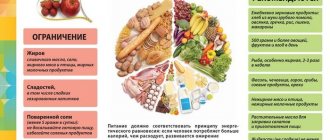25.07.2019 00:00
2797
Very often people eat poorly at work. There is not enough time, there is no canteen nearby - and many other factors that influence eating habits and can cause digestive problems. But eating healthy at work is much easier than it seems.
Author: Ashurbekova Shamsiyat Tofikovna
Very often people eat poorly at work. There is not enough time, there is no canteen nearby, only cookies are available - and many other factors that influence eating habits during the day. Eating fast food in fast food joints takes away a lot of your health and can cause digestive problems. But eating healthy at work is much easier than it seems.
What kind of nutrition should there be?
It must be remembered that the diet of bedridden patients must obey the main rules of maintaining a healthy diet, which apply to every person. These include:
- Energy value or in other words – sufficiency. Food must replenish all energy expenditures of the body.
- Maintained balance . Food must be balanced in key nutrients.
- Compliance with the regime . Meals should be regular and include several meals a day.
- Harmlessness. Products must be safe - you must be able to distinguish fresh from stale products, as well as maintain hygiene.
At the same time, it is necessary to take into account the peculiarities of the patient’s body, described above. Let's consider the fundamental elements of nutrition for bedridden patients.
Eating protein-rich foods.
Replenishing the required amount of protein is an important factor in the diet for a person confined to bed. Protein affects the maintenance of lean body mass and the restoration of other tissues. Protein contains the main building blocks of the body, also called amino acids. Our body can synthesize almost everything except 9 types of amino acids, which is why getting them from food is so important. Proteins are found in large quantities in foods such as: dairy products (yogurt, kefirs, cottage cheese and milk), seafood (all fish products), chicken eggs, a variety of legumes, turkey and chicken meat, varieties of red meat, etc.
The amount of protein received per day may depend on body weight, the age of the patient and the amount of energy burned . As a rule, the norm for a bedridden patient is to receive protein at the rate of 1 gram per 1 kilogram of weight. There are cases when the norm is higher, for example, in the presence of bedsores, however, you should not take an excessive amount of protein foods, especially when it comes to a patient with kidney diseases. The nutrition of a bedridden patient must have a certain balance of proteins, fats and carbohydrates.
It is worth remembering that if patients develop bedsores, then the body’s needs for nutritional compounds increase. For example, if there is insufficient protein, healing occurs more slowly or stops altogether. In one day, such wounds can lose up to 50 grams of proteins with exudate. The result of this is an increase in the need for protein by 1.5 - 2 times.
Combining sedentary work and exercise
Of course, there will always be reasons that prevent you from combining work and sports. For example, a long drive to work, which seems to take more energy than the work itself. And if you stand in traffic jams for a long time, this also threatens nervous tension. In second place are stress and physical and/or mental labor at work; it is undoubtedly tiring. Irregularity of training due to frequent business trips, etc.
As a result, complete disappointment and reluctance to engage in any physical labor sets in. I want to come home, sit on a soft sofa, turn on the TV and spend another week or two like that. You know, it’s not so bad if you were mentally or physically overworked. The main thing is that you have the strength to get up and continue on the path to a healthy lifestyle.
With such a vacation, it is important not to worsen your condition, to feed on the positive, to make plans, as they say, not to go “on a binge.” You understand that excessive use of lying on the sofa will lead you to metabolic failure, obesity and other troubles. And since your work is sedentary, chronic diseases cannot be avoided.
Training plan
So, the plan for the training process is as follows. On weekends, try to go to the gym or group classes. Believe me, cardio training will give you more mood and energy than sitting at home. On Wednesdays, before or after work, attend water treatments, there you can relieve any tension and prepare your body for the next day. Gradually increase the number of activities that are comfortable for you (swimming pool or yoga, gym or punching bag, it all depends on you).
Movement is life (write this in the most visible place). Run in the mornings or evenings. Don't let laziness into your life. She is “friends” with diseases of the circulatory system and rapidly advancing old age. After all, scientists have already proven that people who lead a sedentary lifestyle age 5 to 10 years earlier.
Sufficient amount of calories.
To eliminate the likelihood of gaining excess weight, the diet should not contain the same number of calories as active people; on the contrary, there should be fewer calories . Fresh vegetables and fruits, as well as grain porridges (in liquid and boiled versions), lean meats, and low-fat dairy products are low-calorie foods. In addition, they should form the basis of every person’s diet (according to WHO recommendations). Eating a normal amount of calories greatly reduces the likelihood of overweight and obesity - they are factors leading to heart disease, hypertension and a significant increase in blood sugar. But there is a tendency for a strong decrease in appetite in bedridden patients - these circumstances make it difficult to obtain the required amount of nutrients and calories.
Healthy fats in the diet.
Don't underestimate fats. They are necessary for the proper functioning of the human body. Many nutritionists recommend eating foods with unsaturated fat (for example, fish and vegetable oils), and foods with saturated fats should be limited in consumption (meat and dairy products), however, you should not completely abandon them.
Unsaturated fats have a large number of beneficial effects on the body - they have a beneficial effect on the functioning of the cardiovascular system, help improve sleep and brain function. They also strengthen bones that are weakened as a result of low mobility of a bedridden patient. Unsaturated fats are found in salmon, sardines, cod and flaxseed oil. It is necessary to coordinate the diet with your doctor : ask him what you can feed and what you should not feed. Since there is a possibility that some products may interfere with the actions of medications or contribute to the occurrence of allergic reactions.
Vitamins and minerals.
Patients who do not consume a satisfactory amount of food may develop deficiencies of vitamins, micro- and macroelements, and this can lead to negative changes in health. For example, an insufficient amount of hemoglobin (as a result of a lack of iron in the blood) can trigger the progression of pressure ulcers and slow wound healing due to a reduced level of protein synthesis and wound epithelization. Therefore, complexes of vitamins and minerals can be added to the patient’s diet , however, you should consult a doctor before doing this. You should avoid taking any one vitamin or mineral in excess of the norm, as this can affect the body's metabolic processes and lead to side effects.
Products that are not recommended for consumption.
We found out what a bedridden patient can eat. What foods should you avoid in your diet? Of course, this list necessarily includes a variety of smoked meats, all types of sausages, semi-finished products (instant food), almost all types of store-bought sauces and ketchups, crackers, chips, etc.
The diet of a bedridden patient should not contain trans fats, which disrupt and weaken the functioning of the immune system, as well as increase cholesterol levels and generally have a negative impact on health. On product packaging there is a composition section, and trans fats are designated as hydrogenated vegetable fats. They are found in large quantities in fast food products, margarines and baked goods with them, as well as in spreads.
It must also be remembered that in the presence of certain diseases there are some restrictions on taking even the “right” food (for example, acidic drinks and juices should not be consumed during an exacerbation of an ulcer).
Drinks in the diet.
Water plays a huge role in all metabolic processes of the human body and is needed for the normal functioning of all systems .
Bedridden patients need a sufficient amount of fluid - give them plain water, weak tea, freshly squeezed juice, uzvar, compote, etc. We advise not to abuse (or better yet avoid) coffee, juices from stores, sweet carbonated drinks, for example, cola.
The main reasons for excess weight due to a sedentary lifestyle
Actually, there is only one reason - lack of physical activity. Here are the consequences:
- Lack of a balanced diet leads to excess calories. These excesses are deposited in problem areas in the form of fat folds.
- Poor circulation leads to stagnation of blood flow in the internal organs.
- A quick morning snack and a lack of normal nutrition at lunch are a guarantee of evening overeating.
Sedentary work does not require physical effort, but uses all the brain energy. And, as you know, the brain “loves” sweets. Fast carbohydrates provide the necessary amount of strength to the brain, but do not nourish the body in any way or saturate the organs with useful substances. As a result, the body receives a huge amount of sugar from fast carbohydrates, processes some of it, and stores the rest in problem areas.
Konstantin,
nutritionist
By removing the causes of obesity, it is easy to get rid of the consequences.
Evening overeating is a real problem for busy people
“Correct” diet.
The generally accepted diet, which involves eating three times a day, cannot be used for a bedridden patient. As a rule, such patients cannot eat a lot and consume at one time the amount of food that is necessary for the body. You should try not to force feed, but try to induce an appetite. The diet in a home for the elderly and a bedridden person should consist of 6 meals a day . What to feed a bedridden patient? Food products must be chosen according to the principles written above, the recommendation of the treating doctor and the desires of the person.
An important point: it is necessary that the food has the “correct” temperature; it should not be cold or hot. Meals should consist of warm food. Too hot food can lead to burns of the mucous membranes, and cold food can lead to a cold, since the immune system is greatly weakened.
How to feed the patient and in what position?
Bedridden patients are unable to care for themselves independently. You need to help them wash their hands (if this causes difficulties, you can use special disinfectants or napkins). Patients may drop food, so immediately before the appointment it is necessary to cover the bed with a towel or tablecloth. You need to pay attention to ensure that food crumbs do not fall on the bed. Crumbs can lead to the development of bedsores.
What is the procedure for feeding a bedridden person? Before directly eating, he needs to be either slightly raised or placed on the bed . Feeding while lying down is extremely dangerous, as there is a possibility that the patient will choke or choke. If a person has difficulty keeping his head upright, he needs help with this by holding himself.
You need to fill the spoon about 2/3 full with food so that the food does not spill. Don't rush into the feeding process. You must first bring the spoon with food to the patient’s lower lip so that he can smell the smell. How to give a patient something to drink? If the patient has difficulty drinking cups, then you can use a sippy cup or give liquid from teaspoons and dessert spoons.
Sedentary work. What to do?
It is important that the seat is comfortable for you. Take a break every hour, change your position, relax, stretch your joints. Try to include a 5-10 minute walk. Watch your vision; your eyes should not be strained.
Do the exercises
If you spend most of your life sitting and do not pay attention to physical exercise, then try the following exercises:
- Bend and straighten your legs at the knee joint, without lowering your legs to the floor, 20 to 30 times.
- Stretch your neck, stretch the back of your head towards the ceiling. At the same time, straighten your back.
- Bend to the sides alternately 15 to 15 times.
- Raise your arms up through your sides as if you were stretching 5 to 10 times.
- Draw in your stomach, holding for 10–15 seconds (exercise on an empty stomach).
- Squat down several times.
Move more
If you use public transport, get off at the stop before your destination. If you have a car, park it away from home and work. Choose walking. Skip the elevator. Do exercises in the morning. On weekends, and for those who are prepared in the evenings, go to yoga and Pilates classes. Sign up for the pool. Devote 1 hour to training 3 times a week. Do cardio more often, make it a habit.
Set up your nutrition
Improve your diet to improve your health and quality of life. Take vitamins and fish oil. If you don’t have time to eat on time, you can buy breakfast cocktails in sports stores; they are complete nutrition. At work, give up standard snacks like sweets or cookies, give preference to healthy foods, take fruits, pre-prepared food with you, protein bars or protein-based desserts are suitable as a snack.
Improve your sleep
Take time to organize your sleep. Choose a moderately hard bed. The pillow should not be high. Don't overwork yourself. Sleep at least 8 – 10 hours.
Feeding formulas.
Many patients may suffer from severe dysphagia, that is, difficulty swallowing. In such circumstances, various mixtures are used for the feeding process, for example, Nutrizon, Modulen and Nutridrink. Before using such mixtures, you should consult your doctor to determine the most appropriate product (low-calorie or high-calorie, with or without fiber, gluten or lactose, etc.). Formulas can be fed using a spoon, a special bottle or sippy cup . In cases of acute dysphagia, the patient is unconscious, the esophagus or larynx is injured, a stroke has occurred and other difficult circumstances, feeding the bedridden patient is done using a tube.
If the patient can eat regular foods, then the mixtures can be used as food additives.











